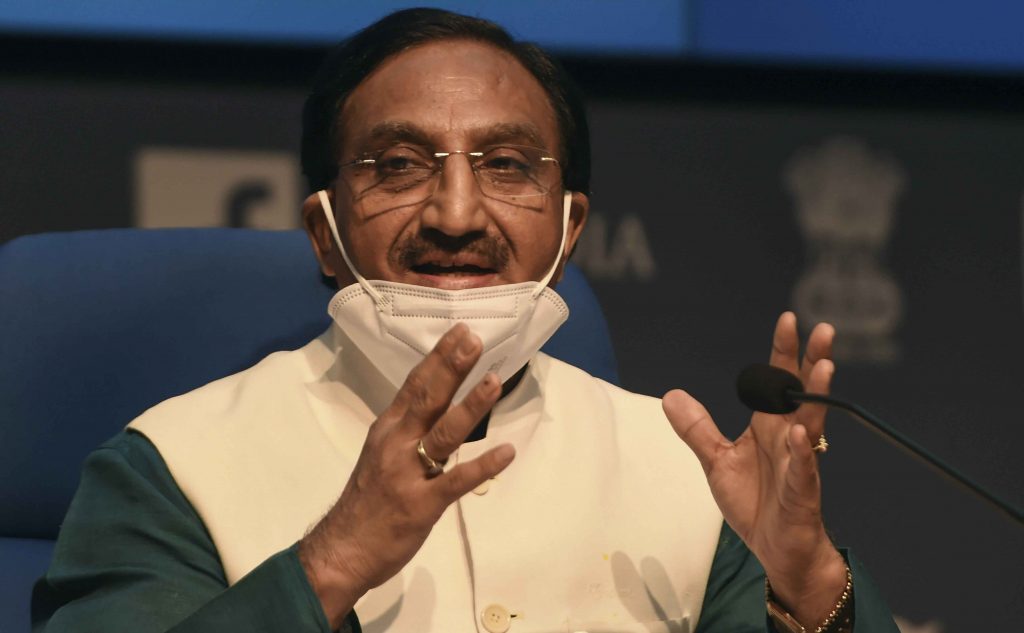New Delhi: A single regulator for higher education institutions, multiple entry and exit options in degree courses, discontinuation of MPhil programmes, low stakes board exams, common entrance exams for universities are among the highlights of the new National Education Policy (NEP) approved Wednesday by the Union Cabinet.
The digital learning process will also be revamped. For this a National Educational Technology Forum (NERF) will also be created. E-courses will be developed in eight regional languages initially and virtual labs will be developed all across the country, according to officials of the HRD Ministry.
The decision to allow top 100 foreign colleges to set up campuses in India was also taken. According to the HRD Ministry document listing salient features of policy, ‘such foreign universities will be given special dispensation regarding regulatory, governance and content norms on par with other autonomous institutions of India.
Also a decision was taken to have one large multi-disciplinary college in every district of India by 2030. Each of these colleges will have 3,000 or more students and will have a vast array of subjects to offer.
The NEP, which was framed in 1986 and revised in 1992, had not been revised since then. The Cabinet also approved changing the name of the HRD Ministry to Education Ministry.
“NEP 2020 aims to increase the Gross Enrolment Ratio (GER) in higher education including vocational education from 26.3 pc (2018) to 50 per cent by 2035. At least 3.5 crore new seats will be added to higher education institutions,” HRD Higher Education Secretary Amit Khare said at a press briefing here Wednesday.
“The policy envisages broad based, multi-disciplinary, holistic under graduate education with flexible curricula, creative combinations of subjects, integration of vocational education and multiple entry and exit points with appropriate certification. Under graduate education can be of three or four years with multiple exit options and appropriate certification within this period,” the official informed.
Among the key reforms in the policy is a single regulator for all higher education institutions except for legal and medical colleges. There will be a common entrance exam for admissions to universities and colleges. It will be conducted by the National Testing Agency (NTA) and common norms to be in place for private and public higher education institutions under the Central government’s NEP.
“Affiliation of colleges is to be phased out in 15 years and a stage-wise mechanism is to be established for granting graded autonomy to colleges. Over a period of time, it is envisaged that every college would develop into either an autonomous degree-granting college, or a constituent college of a university,” Khare said.
Elaborating on the reforms in school education, HRD Secretary Anita Karwal said, “Board exams will be low stake. The focus will be on testing concepts and knowledge application. Home language, mother tongue or regional languages are to be medium of instructions up to class 5.” She further said ‘school curriculum will be reduced to core concepts and there will be integration of vocational education from class six’.
The new education policy was part of the Bharatiya Janata Party’s (BJP) manifesto ahead of the 2014 general election.
In May 2016, a ‘Committee for Evolution of the New Education Policy’ under the chairmanship of TSR Subramanian, former Cabinet Secretary, submitted its report. Based on this, the ministry prepared a document called ‘Some Inputs for the Draft National Education Policy, 2016’.
Then, a panel led by former Indian Space Research Organisation (ISRO) chief K Kasturirangan had submitted the draft of the new NEP to Union Human Resource Development Minister Ramesh Pokhriyal ‘Nishank’ when he took charge last year.
